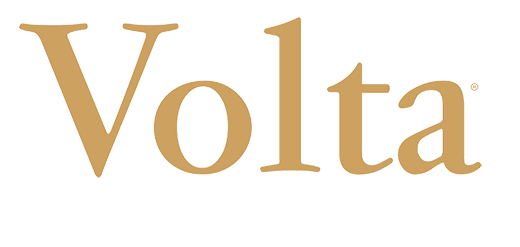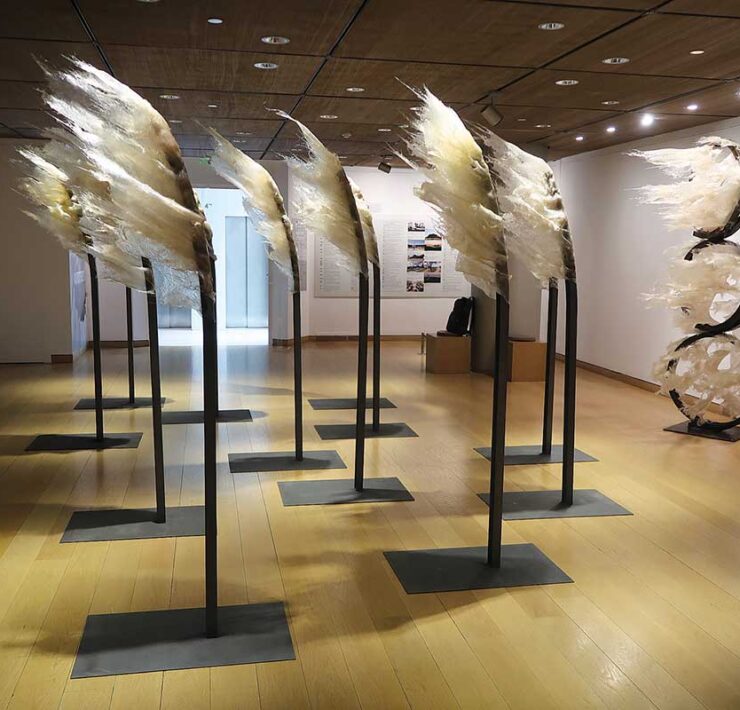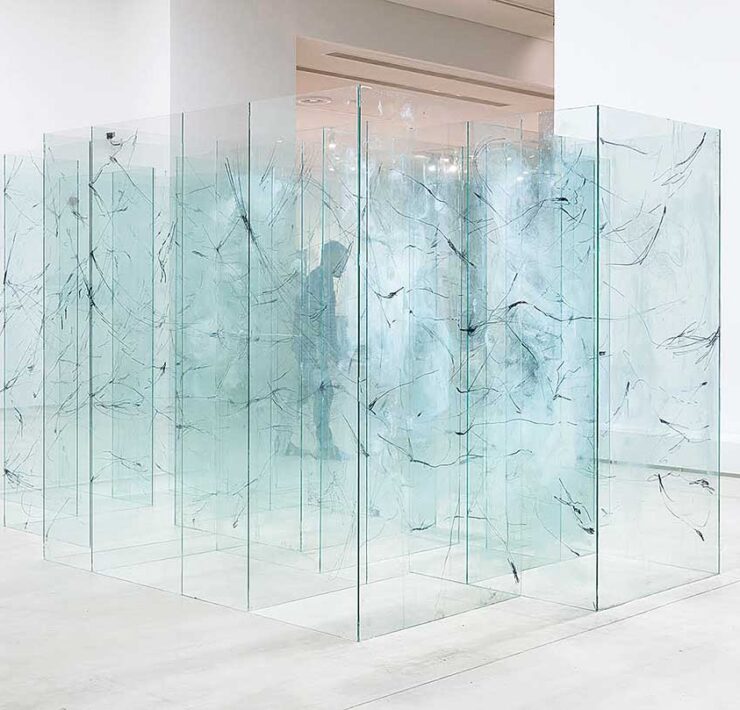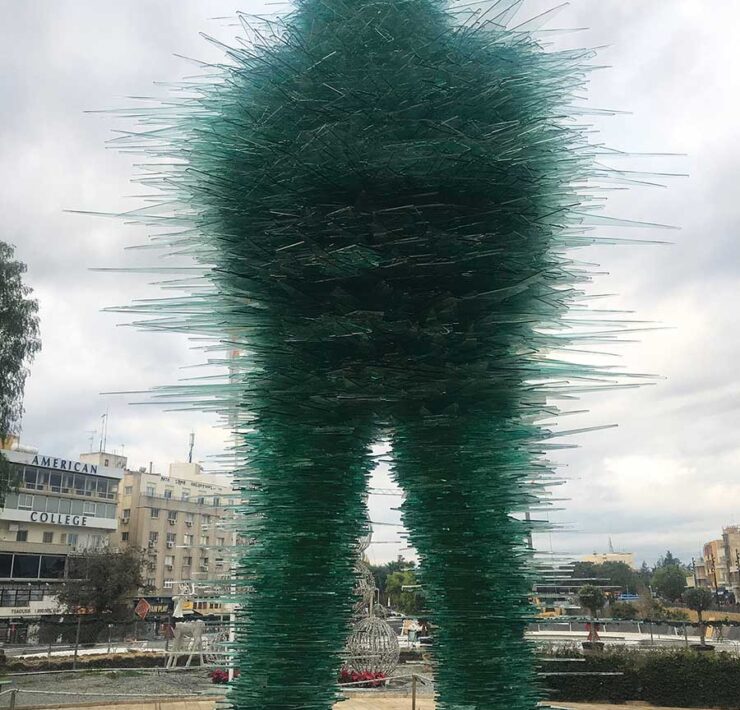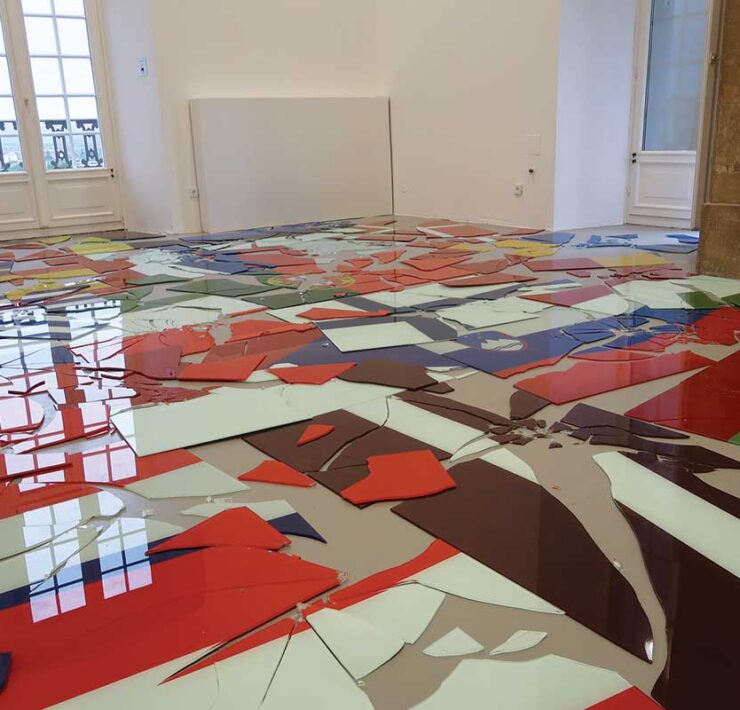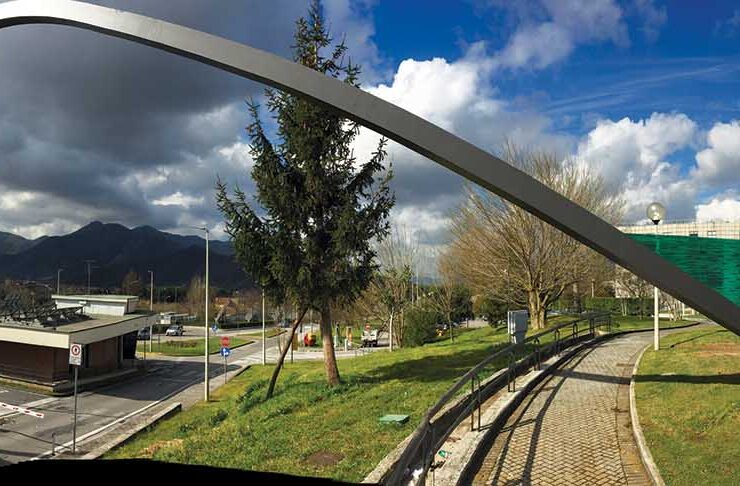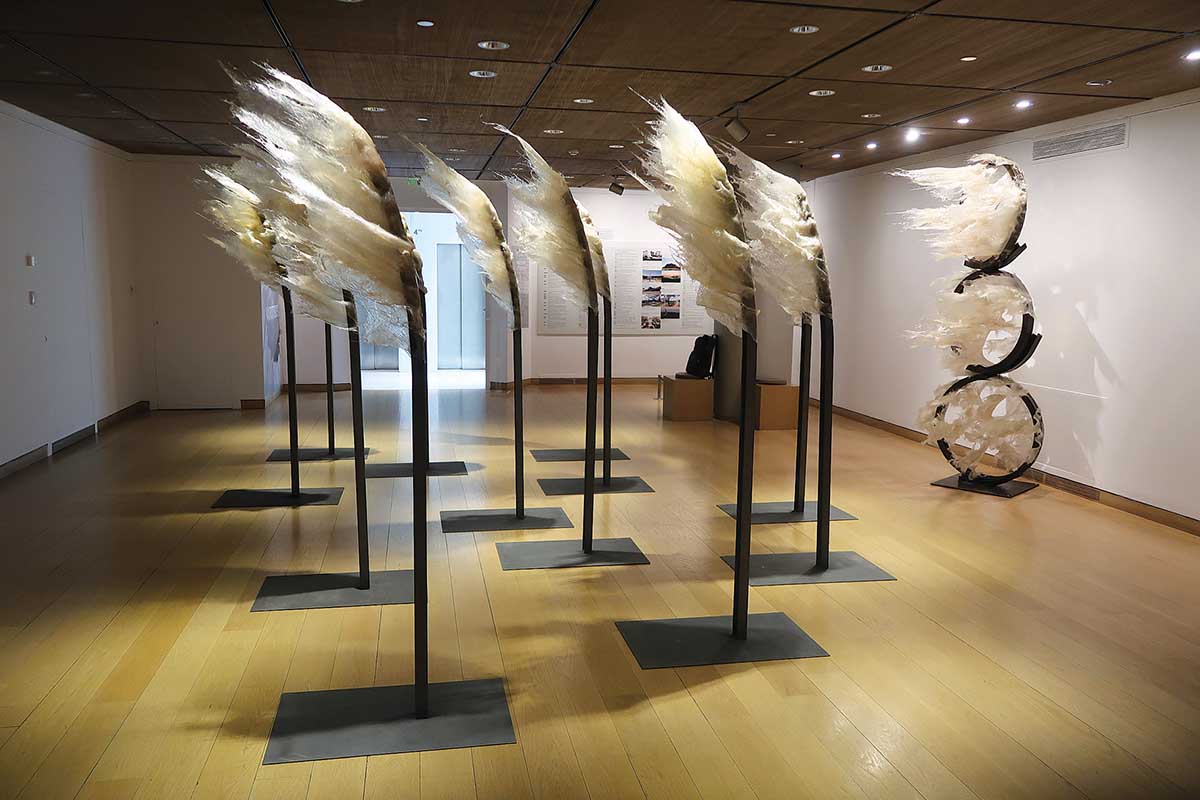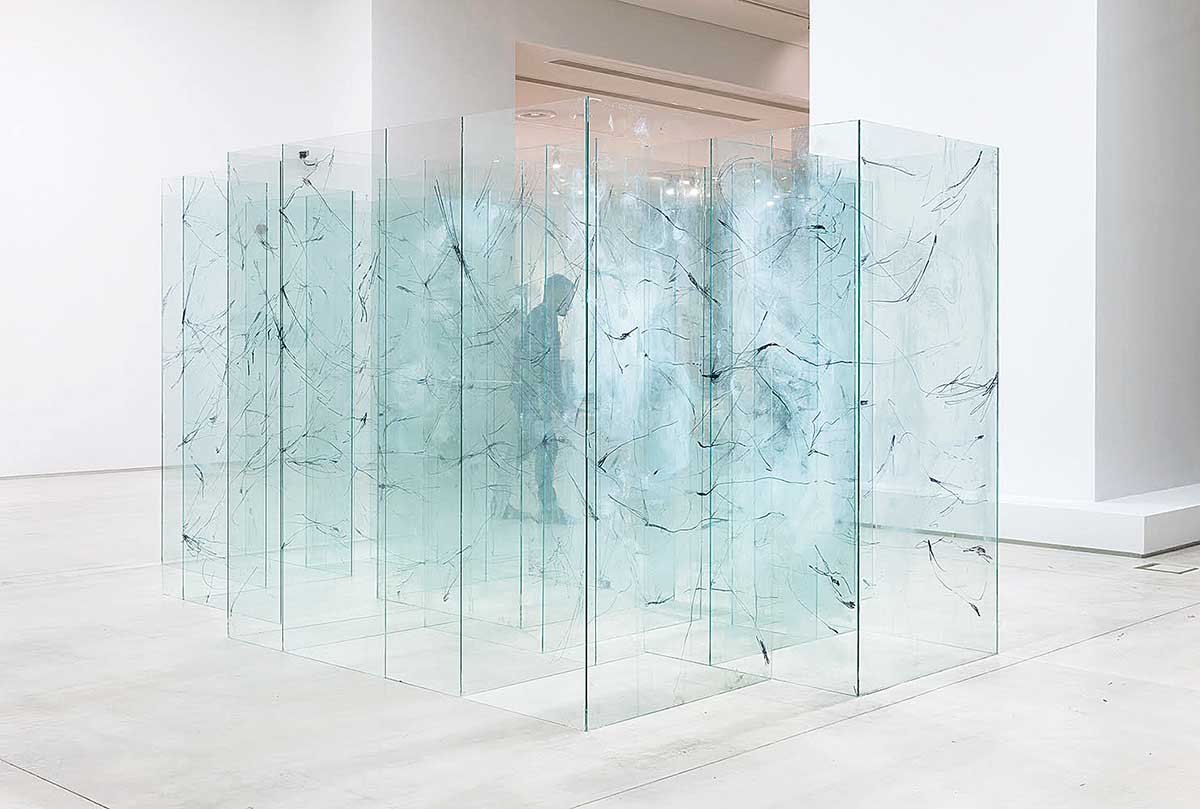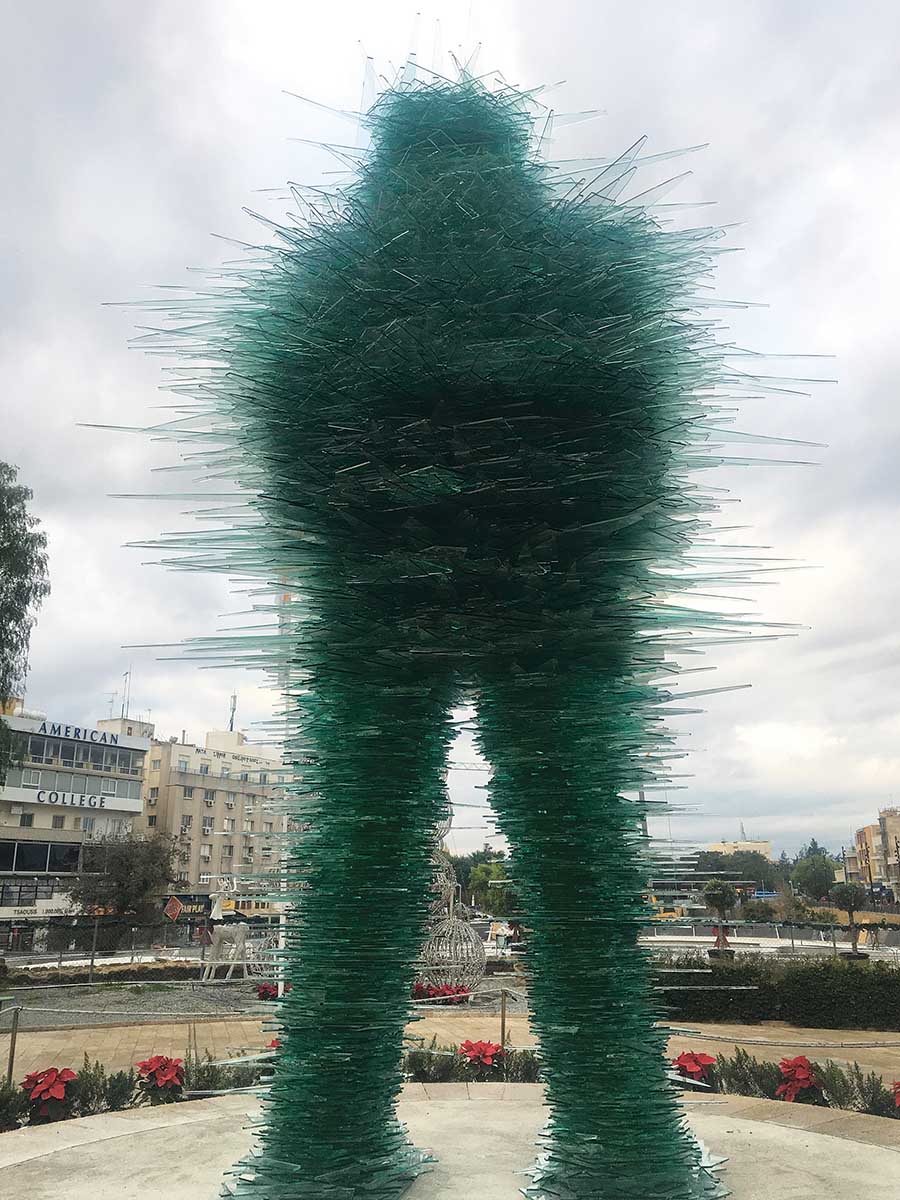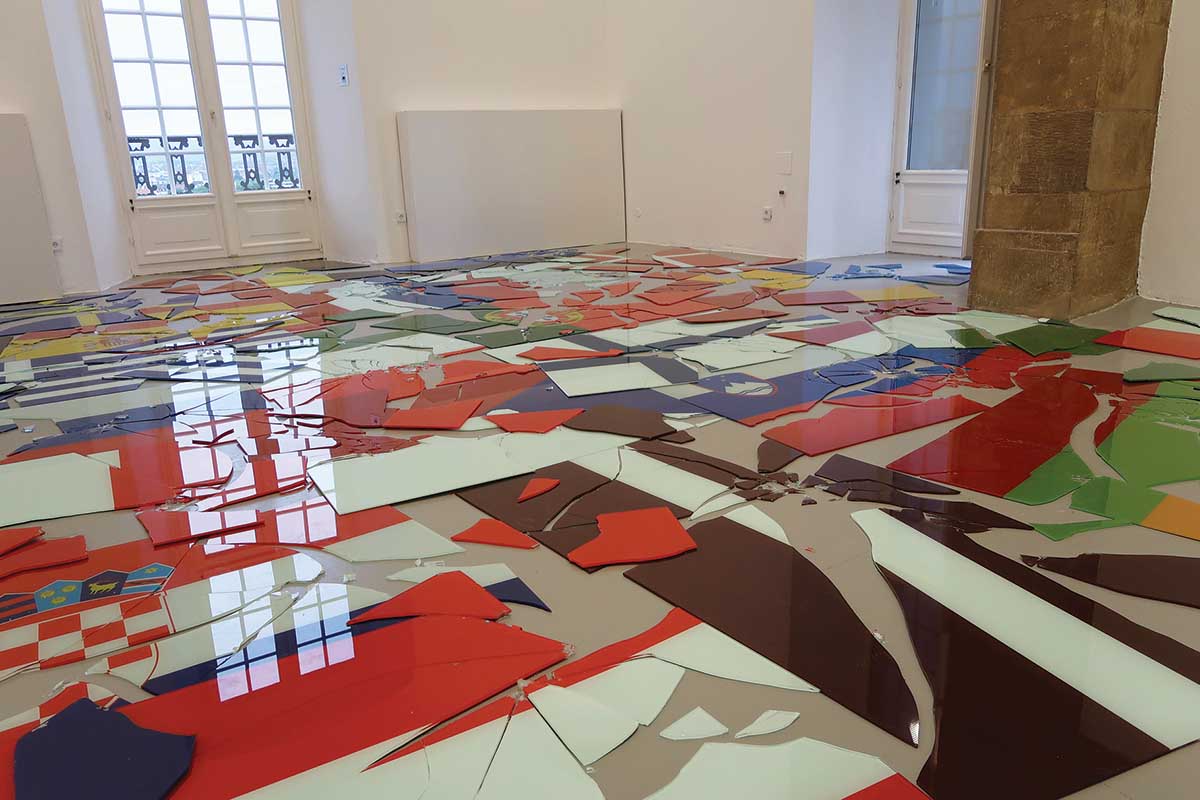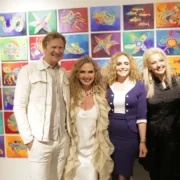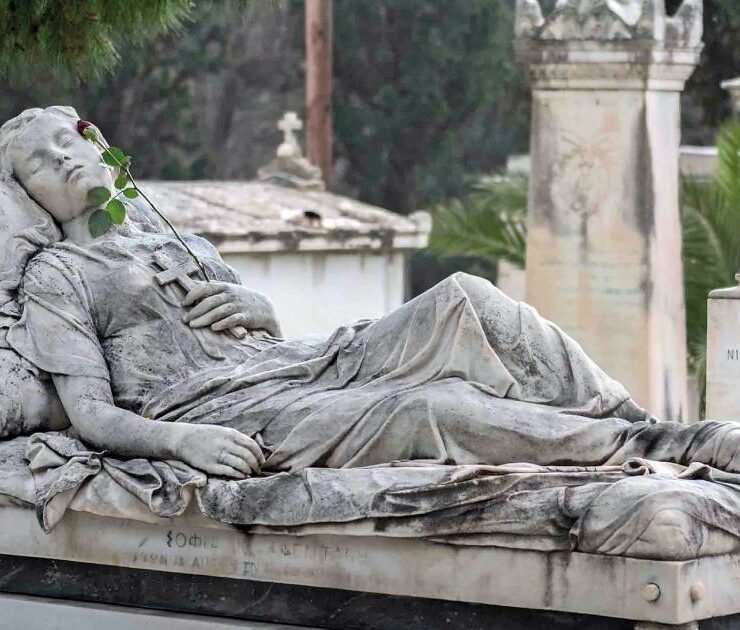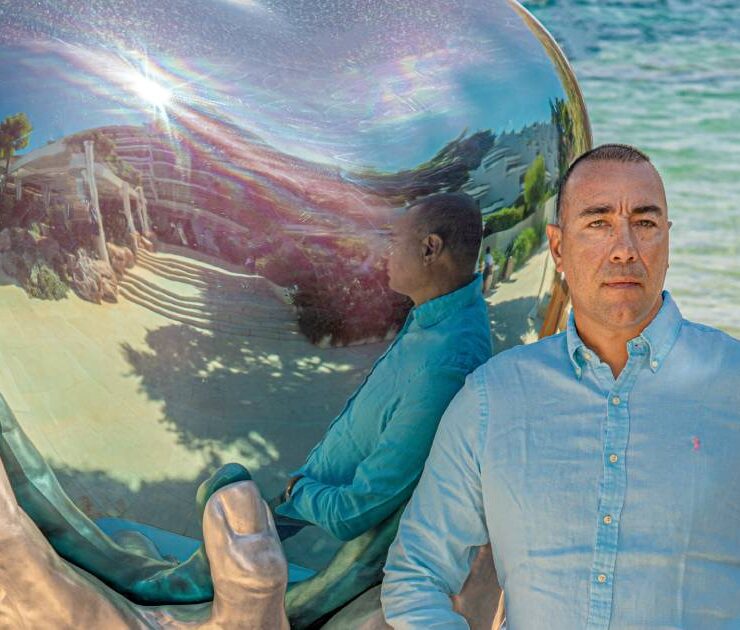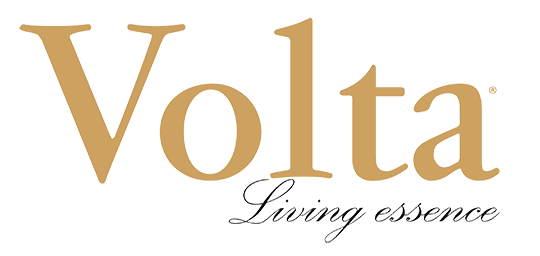Costas Varotsos
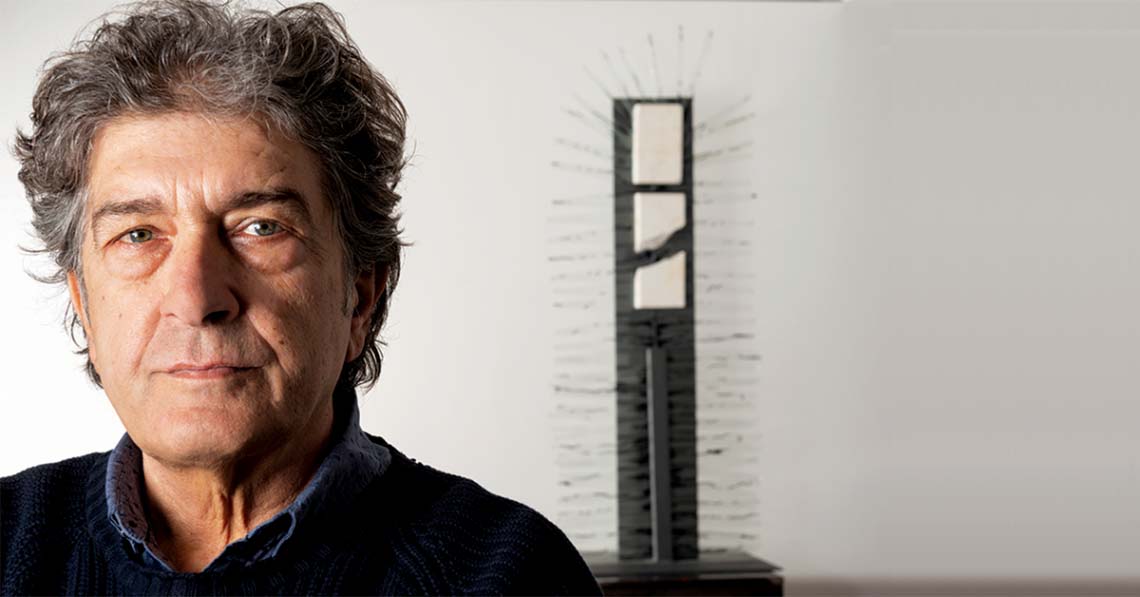

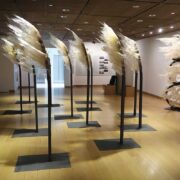

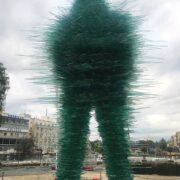 +2
+2 Transparent and sharp just like the glass he uses for his sculptures, strong as metal, thirsty for expression through art, an innovator with brave speech. His light shines upon the world as he expresses his truth through his works, sparking an exciting dialogue. He is a great Greek creator whose works decorate public spaces in Italy, America, Spain, Switzerland, Cyprus, Egypt, and France, such as the emblematic “Dromeas” in Athens and the “Poet” in Cyprus.
You are an internationally acclaimed artist. Have you ever felt insecure in that you may not become aware of the new trends? Does being acclaimed create a fear of risking where your art is concerned?
You mentioned two important things, fear and fashion. Fear is always there and can appear at any age. One thing that artists always must deal with is fear. Some artists start with great potential only to find out that at some point, their works have no life, they have become withered.
This has nothing to do with age, instead it is caused by important life events that may affect the human psyche and create fear. Once you’re afraid, the muse stops offering her blessing. Overcoming fear is what leads you to new paths, it is the essence of human existence.
A real work of art, that is not just a look alike, must have roots and needs to become immediately international. Local means international. Being international is not about being in fashion. Today, all I fear is whether I will continue to create real things. You don’t wonder about a tree, and that’s how art should be.
How do artists overcome fear?
Sometimes I tell my students, that if you wish to create something, you must jump from a plane without a parachute, and grow wings on the way down. That’s the only way you can create art. If you manage to make the jump, you are sure to grow wings. Even if you fall like watermelon, that is the cost you must pay, however those who manage to jump, usually do grow wings. I have indeed fallen like a watermelon, but by violating other rules. Arrogance is a very dangerous thing, but I never crashed because I did not grow wings.
How has globalization affected art?
In the past, everyone was excited about the idea of globalization, with the fact that we would belong to a global village. This, of course, was a big trap because the dominant centers of power used information channels in order to control the system and create a grid of interactions and means of control that defined the game. Since art is the production of culture in a specific geographic area, no matter how much you try to compete with an artist from New York and sell them pop art, you will lose, because drawing a line and that is inherently pop is part of their DNA.
It’s like someone from New York playing bouzouki in rebetika. He may be able to do it, in which case we will accept him for his talent, but he will always be the American who plays rebetika. This is what happened to art, the whole world was trying to play rebetika. Suddenly, the London and New York groups tried to block what was called taste. They played little games, using mainly new and some better known artists that commanded higher prices for their work.
They set things up, they bought all the work from new artists, for 500 dollars apiece, they organized a couple of exhibitions and put them in Flash Art and then sold them for 15,000 dollars. What kind of investment gives this kind of return? This started a game of profit making that was eventually revealed. In New York and in Los Angeles, they ask for Varotsos, because they do not have a Varotsos.
They ask for my work because it is something they do not have. I started walking this path in the 70’s, and still have a long way to go. Further up this path is Hermes of Praxiteles, the Acropolis, the Victory of Samothrace… there’s a lot of history.
Today the modern thing to do is to see the Acropolis. It is our symbol and it must guide us.
Do you mean that we must go back and study the classics?
This is something that happened in the West, but never in our own society. During the Renaissance, the West transported the classics into the modern era, creating a stepping stone for western civilization. Inside the Vatican, you can see the School of Athens that was created by Raphael, with Aristotle and Plato; these were the people that gave them inspiration.
We were part of the Byzantium, that was fundamentally against this culture and fought it at every turn. This is the truth. Greece never experienced the Renaissance, and this makes it difficult for us to have historical awareness. The Italians, the Germans and the French, all have a much greater historical awareness than we do. That is shocking. It’s a very modern thing to say that we should step on these classics. It is high time that we took that step, so we can move forward without looking left and right or at New York for example. There, they expect new ideas from elsewhere.
Ultimately, what does Greece have to propose?
The big question about Greek society is what we can suggest, what we can produce. The European Union is waiting for us to come up with solutions, instead of showing an open hand that is asking for money. We are merchants and retailers, not producers. The Greek state is a new state.
Since it was established, our greatest concern is our identity. We are constantly trying to figure out who we are and what we represent. Americans faced the same problem, with regards to their cultural awareness. They found themselves at a crossroads, with Pollok on one hand and Andy Warhol on the other. Between the two movements they managed to define themselves. Of course they became more aligned with Andy Warhol and pop art, which has been passed vertically across society and in all manners of expression.
America’s culture can be seen after the war and the 60s, to be suddenly compact, managing to create coherency and cultural awareness. Ever since the Greek state was established, all art production is defined by the anxiety of artists to try and find something that is called identity. Very important works of art, (in poetry and prose for example) have stemmed from the artists’ search to find their identity and discover their roots. Of course, fashion has often made things blurry. Our problem with evolution is that we lack the mechanism to evolve.
That is why every evolutionary step in Greek society has been traumatic, because we always represented something else.
Please talk to us about the National Museum of Contemporary Art.
I used to be on the Board of Directors of the Museum. There is a painful story behind the National Museum of Contemporary Art, as we are facing a huge problem with modern art. The role of the museum is to regulate, to define the hierarchy and the art system. When the museum is missing, everything becomes blurred.
There has never been a hierarchy and substantial evaluation, because there hasn’t been a system of evaluation based on an institutional structure. Based on these facts, everyone is a great artist, and we only manage to hear the ones who make noise. The present situation suits a lot of people. When we manage to get a regulatory body, there will be several artists who will not be in the museum.
Culture is a key pillar of foreign policy. Is it possible for renown artists, like you, have a positive influence on the image of Greece?
Let me give you a typical example. When pop art came to the Venice Biennale in 1968, with Rosenberg, Warhol and others, the Sixth Fleet was outside Venice, and all sailors on shore leave wore white t-shirts printed with the works of American artists. When the CIA archives were opened, they revealed that it funded pop art with huge amounts of money. Art has always had a pervasiveness, communicating and influencing important people, as no foreign minister could ever accomplish.
For culture to be used as a pervasive instrument and as a means of assisting our foreign policy, there must first be a cultural consciousness. In other words, the produced product to be a consciousness of those power. Power needs to understand the produced cultural product for a specific geographical area. The problem is that power thinks it’s the product.
Thank you!
